Mātai mokopuna – he tirohanga wairua, hinengaro, tinana, whatumanawa
Introduction Mātai Mokopuna: He Tirohanga Wairua, Hinengaro, Tinana, Whatumanawa is a research project that addresses a longstanding need to deepen knowledge and understandings about assessment within kōhanga reo. To date, assessment within kōhanga reo has not been funded, resourced, or supported at the same levels as it has within mainstream/ English-medium ECE services (McMillan et […]
Addressing the needs of transient students: A collaborative approach to enhance teaching and learning in an area school
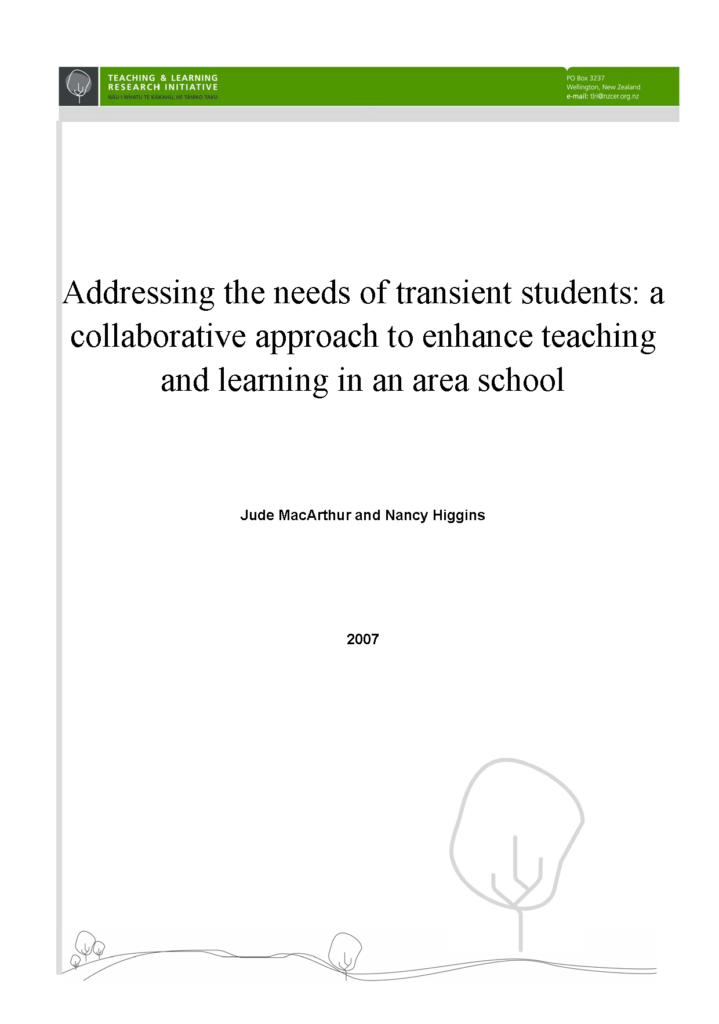
Note for readers Student Pseudonym Ethnicity Age Gender Marilyn NZ European 14 F Fiona NZ European 14 F Salofa Samoan 15 F Kate Samoan 15 F Roslyn NZ European 15 F Petra NZ European 14 F Hine Māori 15 F Hanna NZ European 15 F Victoria NZ European 15 F Gloria Samoan 14 F […]
Early algebraic thinking: links to numeracy
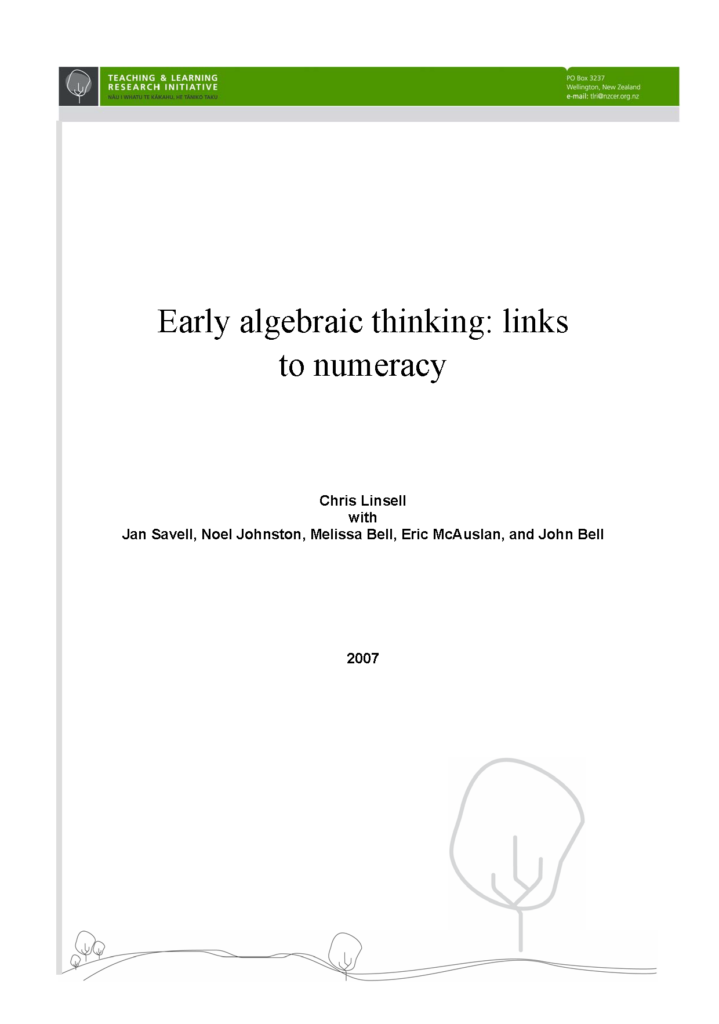
Many students struggle 55⁄25 with introductory algebra and teachers have little to guide them in assisting students to learn this important component of high school mathematics. Little is known about the effect of students’ numeracy on the learning of early algebra, or about the strategies that students use to solve equations. There is widespread agreement […]
Sustainability of effective teaching and school practices: Developing a model for sustaining and extending literacy achievement. A summary
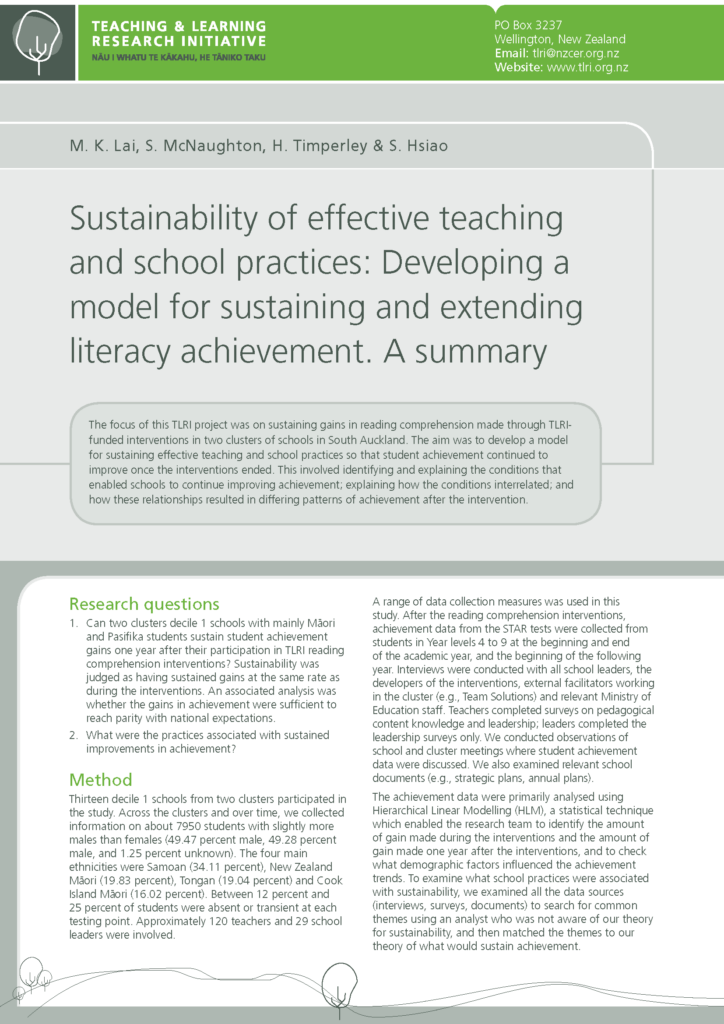
The focus of this TLRI project was on sustaining gains in reading comprehension made through TLRIfunded interventions in two clusters of schools in South Auckland. The aim was to develop a model for sustaining effective teaching and school practices so that student achievement continued to improve once the interventions ended. This involved identifying and explaining […]
Teachers Learning Mathematics: Professional development research
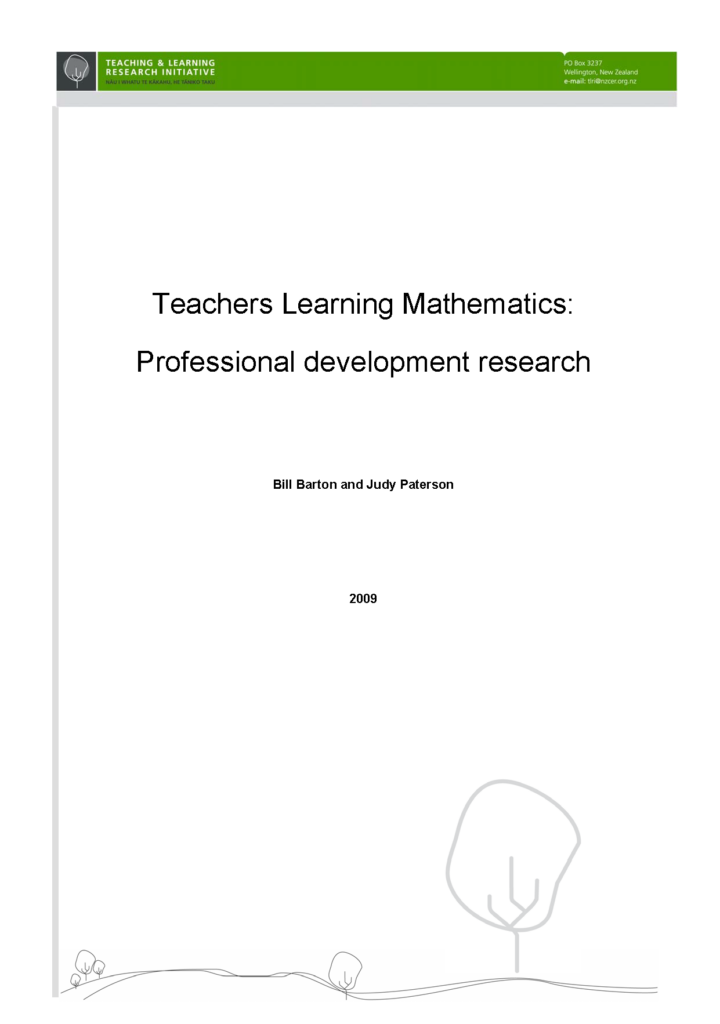
Introduction The issue of mathematical knowledge of teachers has been documented in New Zealand for 80 years, but no effective long-term solution has been found; indeed, the situation has worsened. For example, the 2004 New Zealand Ministry of Education Teacher Census (Ministry of Education, 2005) showed that 25 percent of secondary school mathematics teachers had […]
LEMMA: Learning Environments with Mathematical Modelling Activities
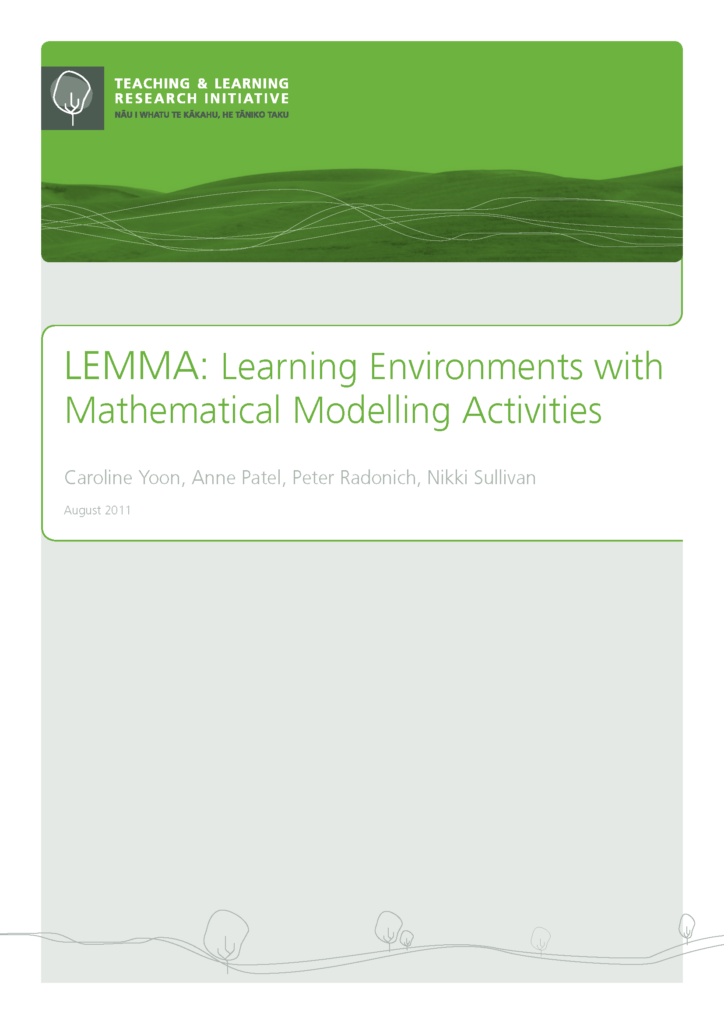
Introduction The LEMMA project—Learning Environments with Mathematics Modelling Activities—grew out of a concern that many of our mathematics students struggle to use mathematical concepts flexibly to solve problems in the real world. The LEMMA project designed learning environments that encourage students to develop sophisticated conceptual understandings and communication competencies through mathematical modelling activities. Like a […]
Culturally responsive pedagogy and assessment in primary science classrooms: Whakamana tamariki
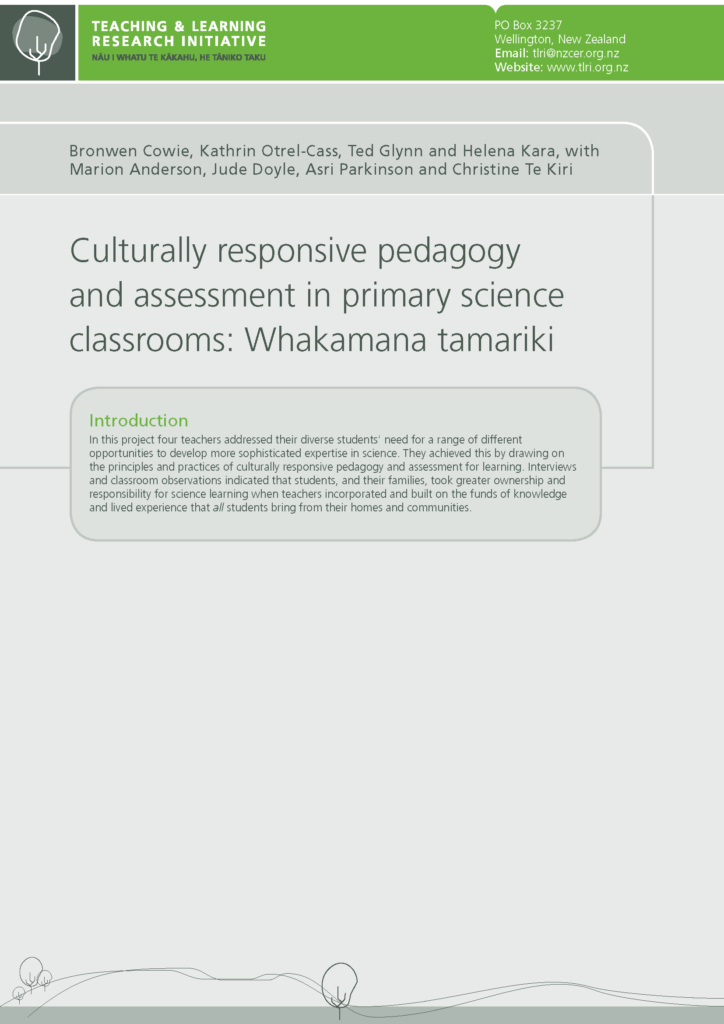
Introduction In this project four teachers addressed their diverse students’ need for a range of different opportunities to develop more sophisticated expertise in science. They achieved this by drawing on the principles and practices of culturally responsive pedagogy and assessment for learning. Interviews and classroom observations indicated that students, and their families, took greater ownership […]
Building students’ inferential reasoning: Statistics curriculum Levels 5 and 6
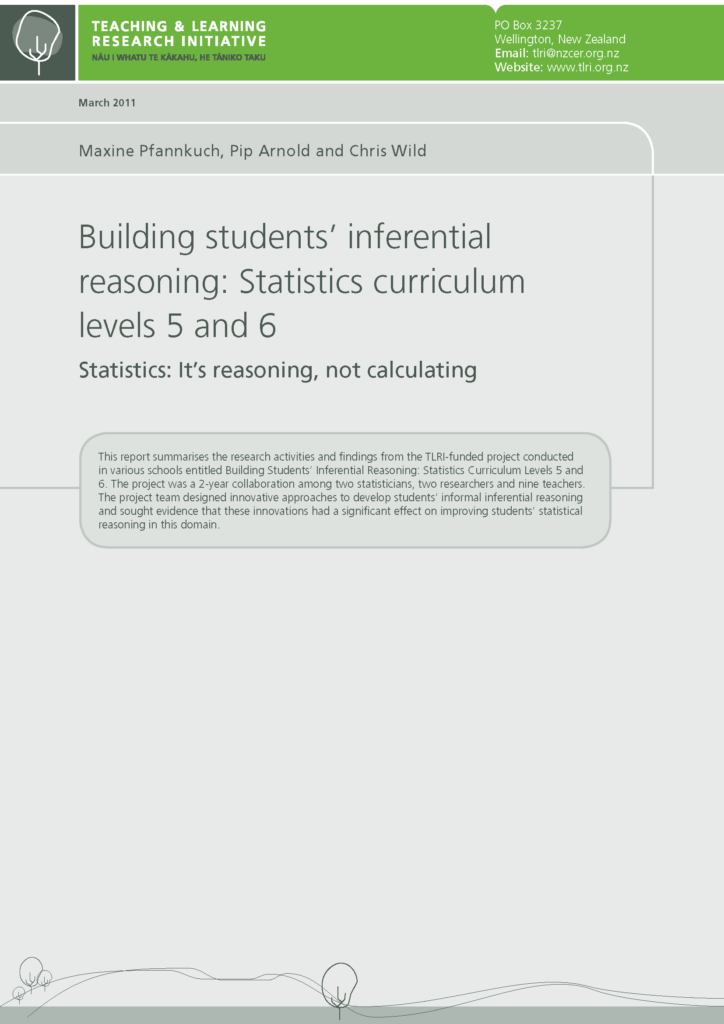
This report summarises the research activities and findings from the TLRI-funded project conducted in various schools entitled Building Students’ Inferential Reasoning: Statistics Curriculum Levels 5 and 6. The project was a 2-year collaboration among two statisticians, two researchers and nine teachers. The project team designed innovative approaches to develop students’ informal inferential reasoning and sought […]
An exploration of field-based early childhood teacher education in Aotearoa New Zealand
1. Description of study, its context and its strategic value Purpose This study seeks to capture the reality and process of field-based early childhood teacher education using the classroom and the learning encounter as a unit of analysis. It includes a beginning focus on, but is not limited to, interactions between “Student And student”, “lecturer […]
Learning to “friendly argue” in a community of mathematical inquiry
Introduction This project explored the sorts of culturally responsive pedagogy teachers can engage in to optimise equitable access for students to proficient forms of mathematical talk and activity. The project sought to further our knowledge of the effects on student achievement and mathematical disposition when a specific focus is placed on building a classroom culture […]
Statistics is boring … because it makes you think!
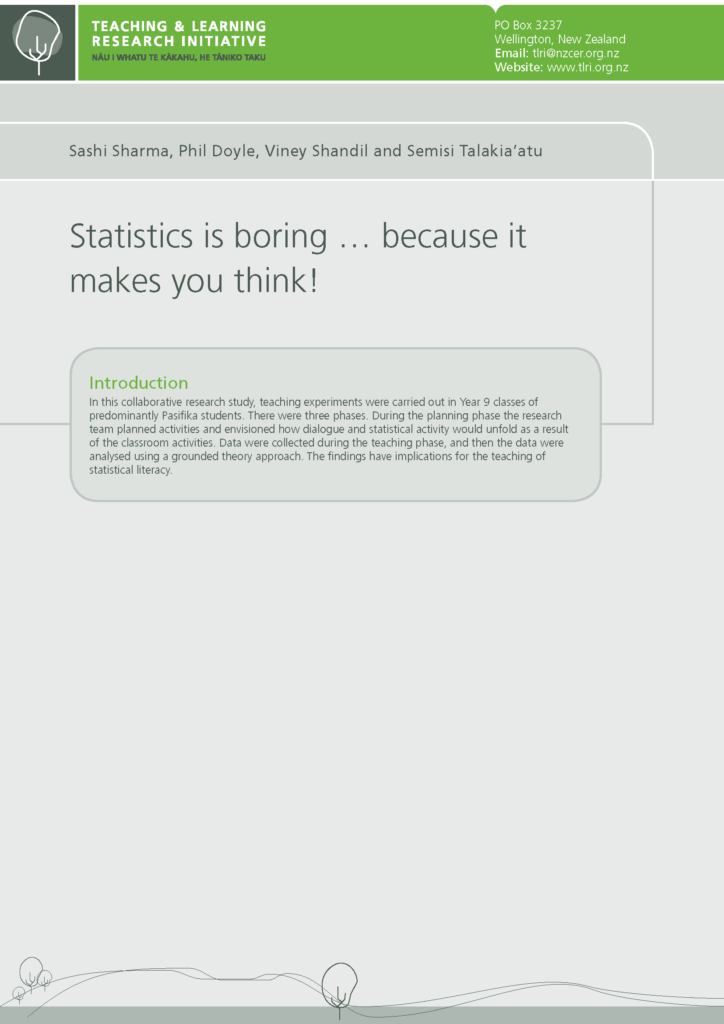
Introduction In this collaborative research study, teaching experiments were carried out in Year 9 classes of predominantly Pasifika students. There were three phases. During the planning phase the research team planned activities and envisioned how dialogue and statistical activity would unfold as a result of the classroom activities. Data were collected during the teaching phase, […]
Augmenting primary teaching and learning science through ICT
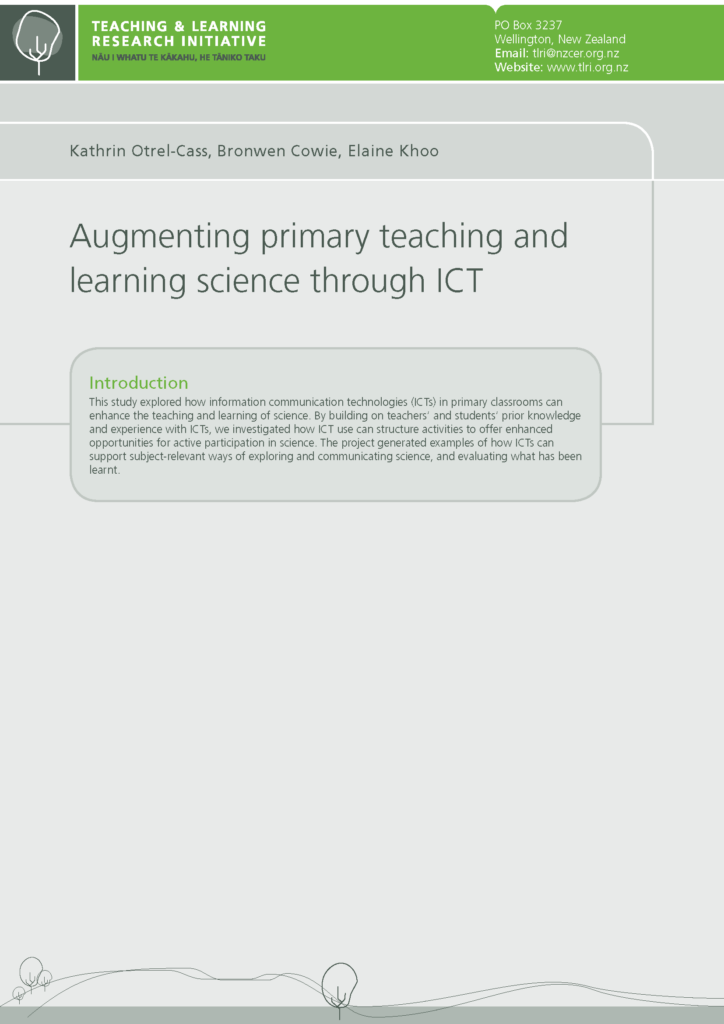
Introduction This study explored how information communication technologies (ICTs) in primary classrooms can enhance the teaching and learning of science. By building on teachers’ and students’ prior knowledge and experience with ICTs, we investigated how ICT use can structure activities to offer enhanced opportunities for active participation in science. The project generated examples of how […]
Success for all: Improving Māori and Pasifika student success in degree-level studies
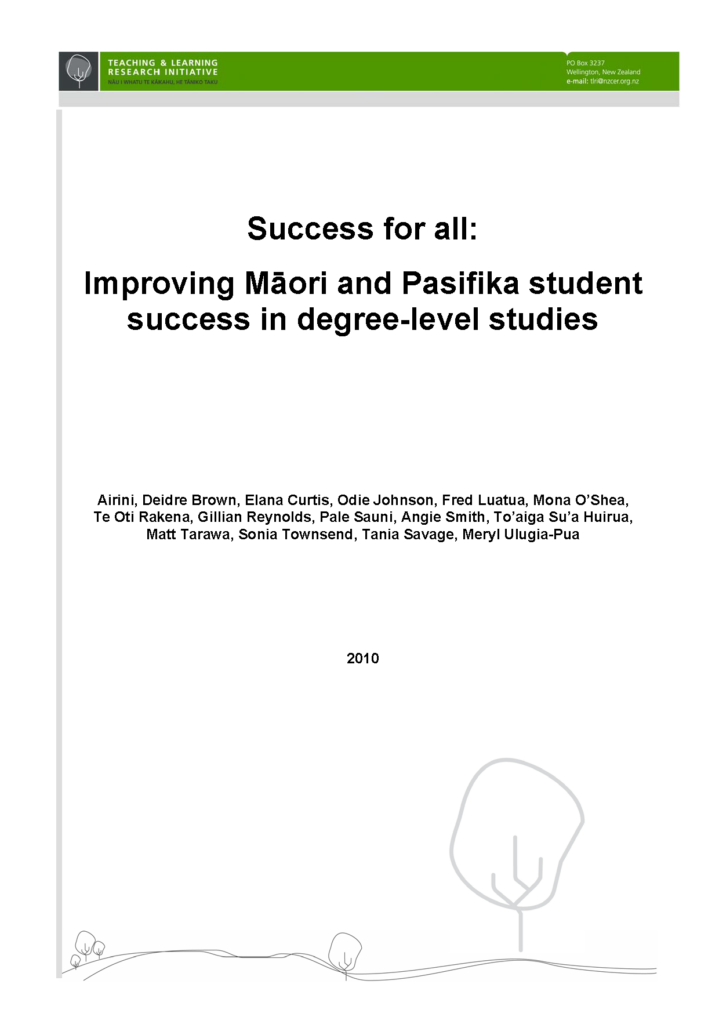
1. Introduction The Success for All project sought to examine the ways in which nonlecture teaching helps or hinders Māori student and Pasifika student success in preparing for or completing degree-level studies. Good practice was to be identified. This report is the final in a series of detailed technical reports from UniServices prepared by the […]
Exploring eLearning practices across the disciplines in a university environment
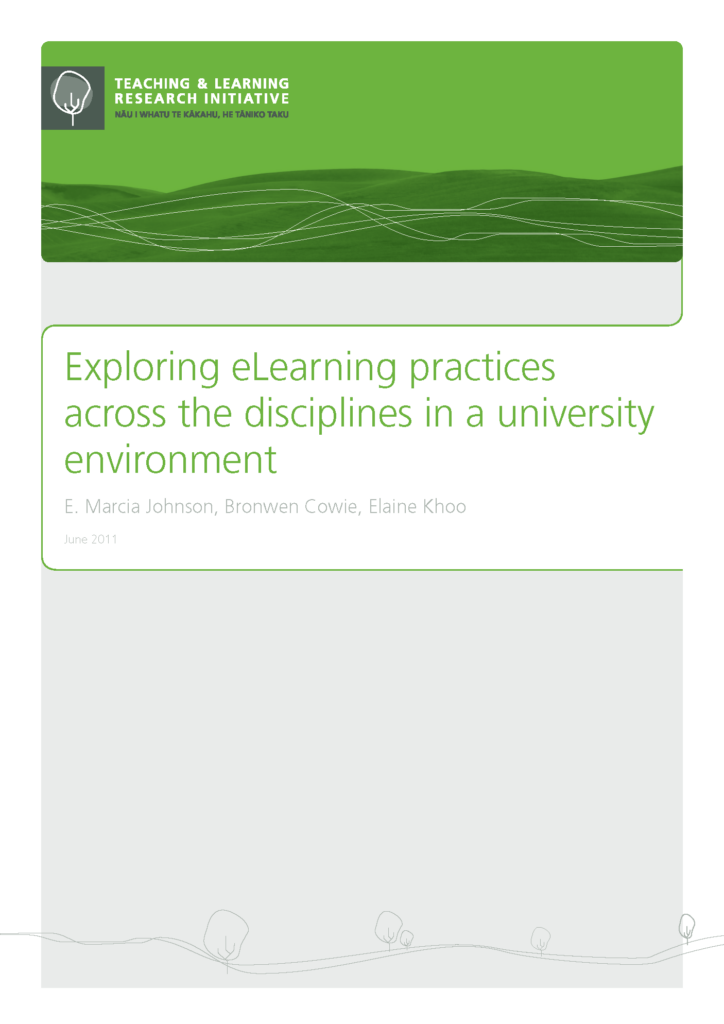
This two-year project used case studies to explore information and Communications technology (ICT) and eLearning practices across different tertiary disciplines and with students from diverse backgrounds, instructional levels, and learning experiences. ongoing, team-based critical discussion and sharing of ideas about the role that ICT and eLearning plays within tertiary teaching enhanced professional knowledge building for […]
Reconceptualising literacy: Critical multiliteracies for “new times”
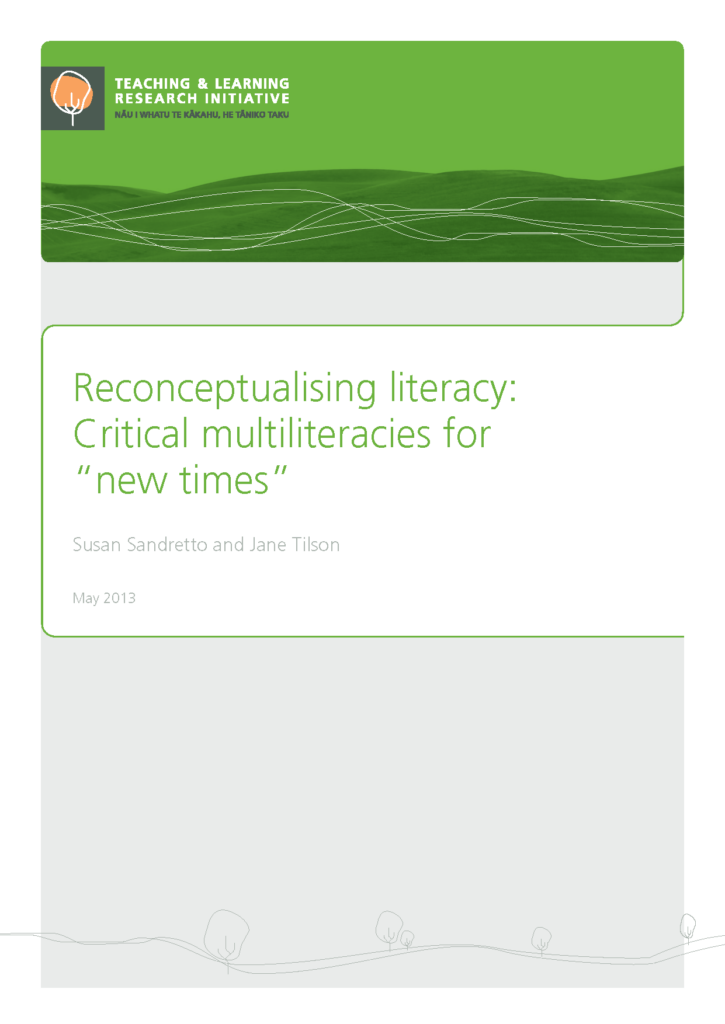
Wave Watchers © Tony Ogle.[1] Introduction We can think of changes in the international literacy landscape as a powerful wave. It has reached our shores here in New Zealand; there is no escaping it. In this report, we argue that given the changes affecting our classrooms through information and communications technology, and increasing student diversity […]
CoRe: A way to build pedagogical content knowledge for beginning teachers
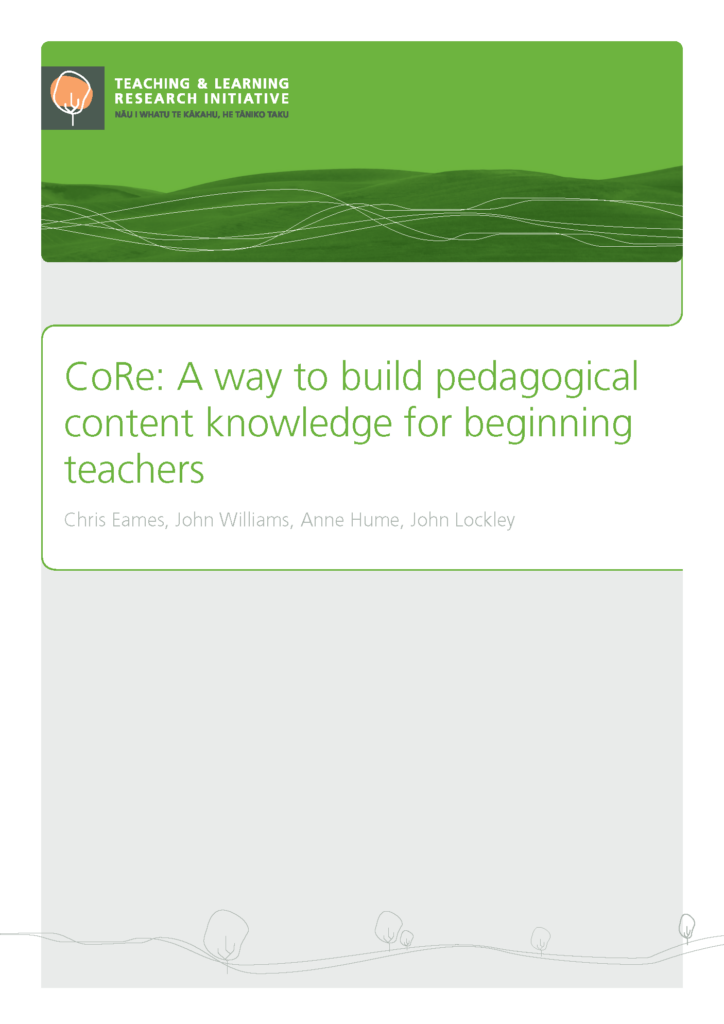
Research has shown that one of the factors which enables teachers to be effective is their rich pedagogical content knowledge (PCK). Beginning teachers need support to develop this PCK and recent research in the field has proposed a conceptual tool known as “content representations”, or CoRes, as a model for doing this. The study reported […]
Everybody Counts? Reimagining Health and Physical Education in Primary Schools

Introduction Health and Physical Education (HPE) in New Zealand primary schools has been dominated by games, sports, fitness, and illness prevention. This narrow and teacher-centred version of HPE has been “nice for some and nasty for others” (Evans & Davies, 2002, p. 17). This project draws on the shared expertise of teachers and researchers to […]
Networked inquiry learning in secondary science classrooms
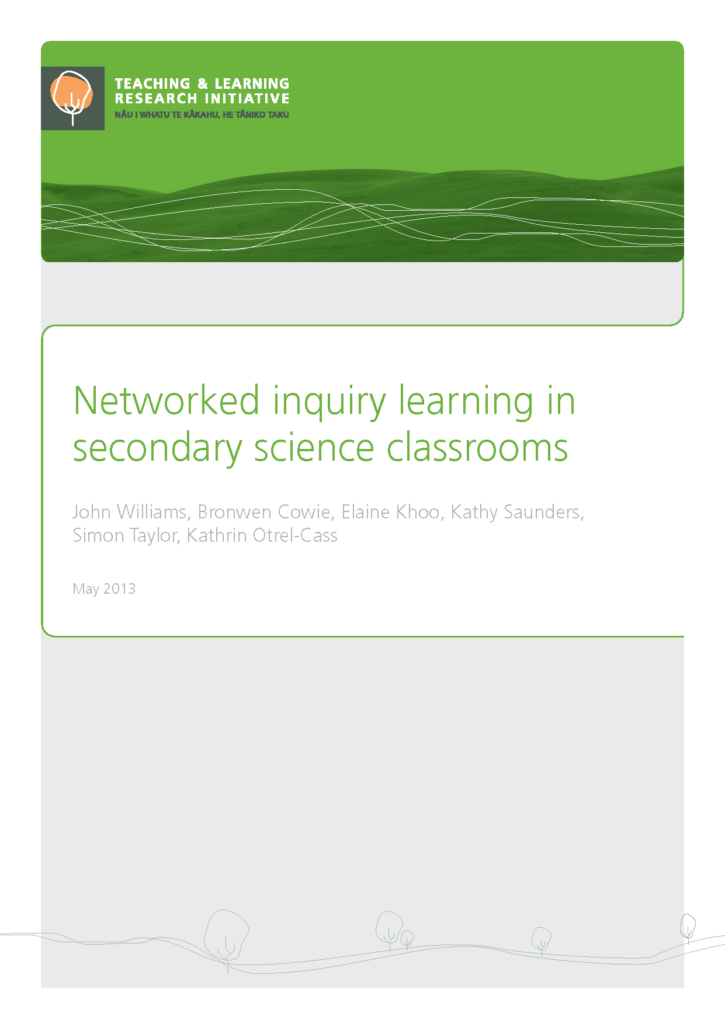
Introduction This research project aimed to understand and explore the ways electronically networked (e-networked) tools can support authentic science inquiry in junior secondary classrooms in order to address concerns about student engagement in science. Internationally claims are made about the potential for inquiry-based learning to address the challenges of relevance for the 21st century school […]
Integrating values in the New Zealand Curriculum: Caught or taught?
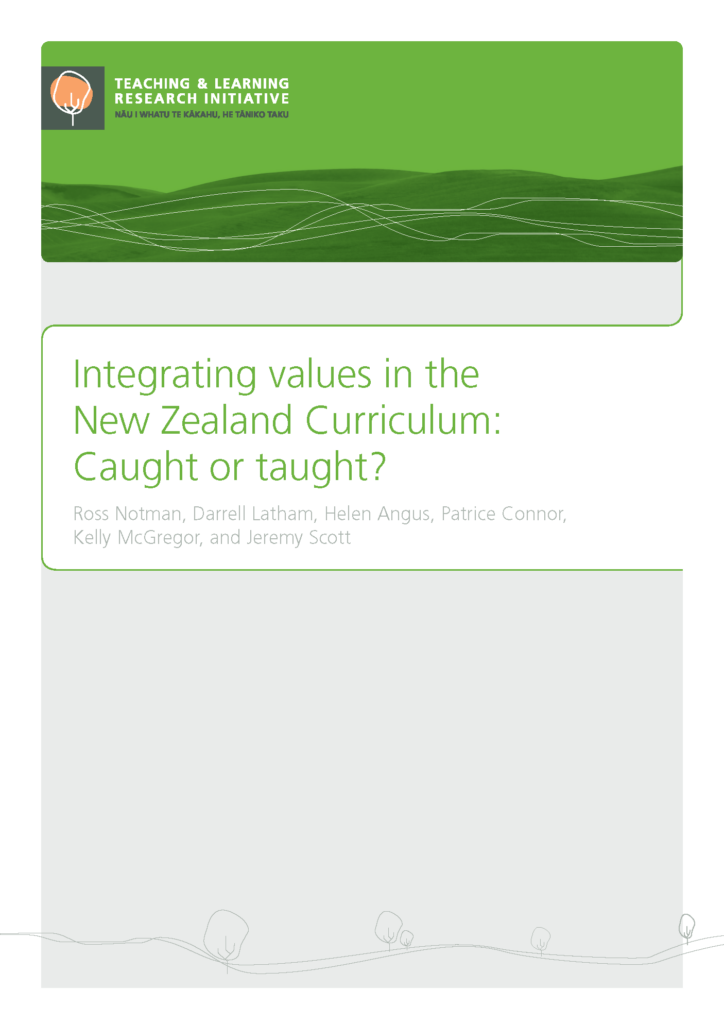
Introduction Currently, there are gaps in our knowledge about values development in New Zealand schools. we do not know what teachers, curriculum leaders and principals believe and know about values implementation in the new curriculum, nor do we know about the effect on student learning of current implementation strategies for teaching values. This study aims […]
Literacy and e-learning: Mining the action research data
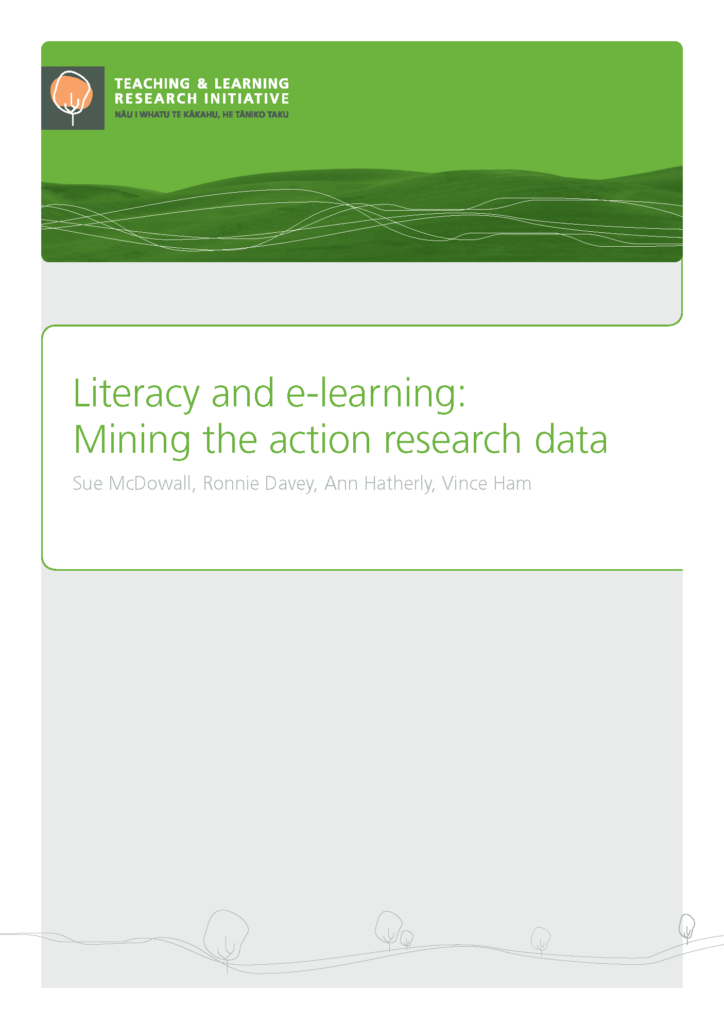
Introduction In this project, researchers and teachers (ECE, primary, and secondary) worked together to analyse unpublished data from a range of action research inquiries on e-learning to articulate, investigate, and build theory about the literacy learning that takes place in e-learning contexts. This summary report provides an overview of our cross-project analysis. The teachers’ case […]
